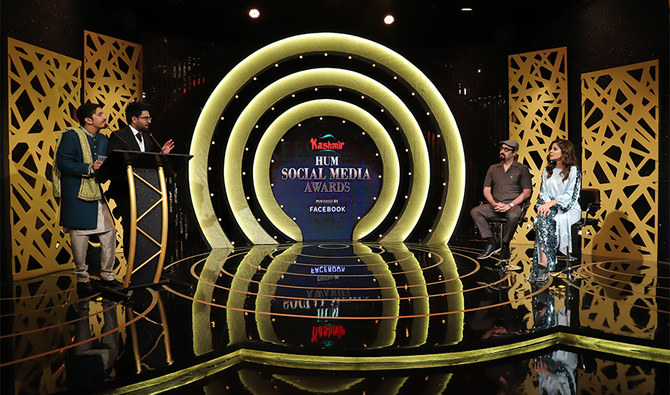KARACHI: Pakistani media group Hum Network Limited held South Asia’s first social media awards in an online ceremony on Friday to recognize individuals who have marked their digital presence in the fields of music, entertainment, fashion, sports and content creation.
Sponsored by Facebook, HUM Social Media Awards 2020 was live streamed on HUM’s official Facebook page. The show, which featured a special performance by Asim Azhar, was hosted by screenwriter Yasir Hussain and social media star Mooroo.
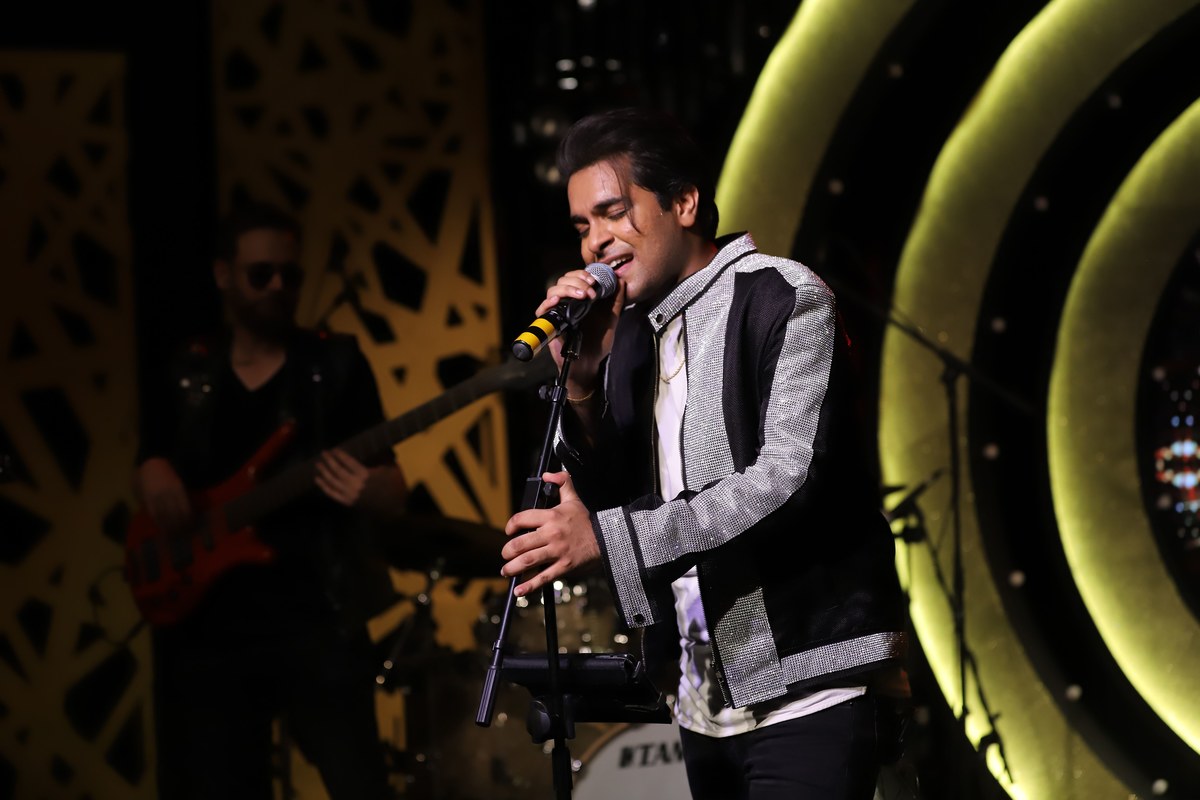
Asim Azhar performing at Pakistan’s first social media award ceremony that was powered by Facebook on October 2, 2020. (Picture Courtesy: HUM Network Limited)
Sixteen awards were handed to social media stars in eight categories: entertainment, music, fashion, sports, most popular TV host, most popular web show, most popular content creator, most popular social media portal. Winners attended the ceremony virtually — through audio and video calls.
The complete list of awards with categories is as follow:
ENTERTAINMENT
The award of “Most Popular Actor – Male” was given to Ahad Raza Mir. The actor thanked his fans, saying he considered them as his family since they supported him like close family members.
Sajal Ali got the award of “Most Popular Actor – Female,” who promised to be back on the screen after her wedding with her co-star, Ahad Raza Mir.
Ali and Mir also got two more awards in the categories of “Most Popular On-Screen Couple” and “Most Popular Off-Screen Couple.”
MUSIC
The “Most Popular Music Artist – Male” award went to Atif Aslam while Aima Baig got “Most Popular Music Artist – Female” award.
FASHION
Five awards were given in the Fashion category. Shahzad Noor became the most popular male model and Sadia Khan was declared the most popular female model.
The “Most Popular Designer” award went to Zainub Chotani, the honor of being the “Most Popular Brand” was received by Junaid Jamshed’s J., and Kashif Aslam of Kashees was declared the “Most Popular Makeup Artist.”
SPORTS
The “Most Popular Sports Personality” award was given to cricketer Shahid Afridi.
OTHER CATEGORIES
There were four special awards, three of them for platforms and personalities who got fame and popularity through social media networks.
Fahad Mustafa got the award of the “Most Popular Television Host – Entertainment” while the award of “Most Popular Web Show” went to Voice Over Man.
Zaid Ali T became the “Most Popular Content Creator” and Galaxy Lollywood was declared the “Most Popular Social Media Portal – Entertainment.”
Those who received the awards addressed the audience through prerecorded or live messages. The stage was designed in a retro style of black and yellow, with only a dais and two chairs on it.
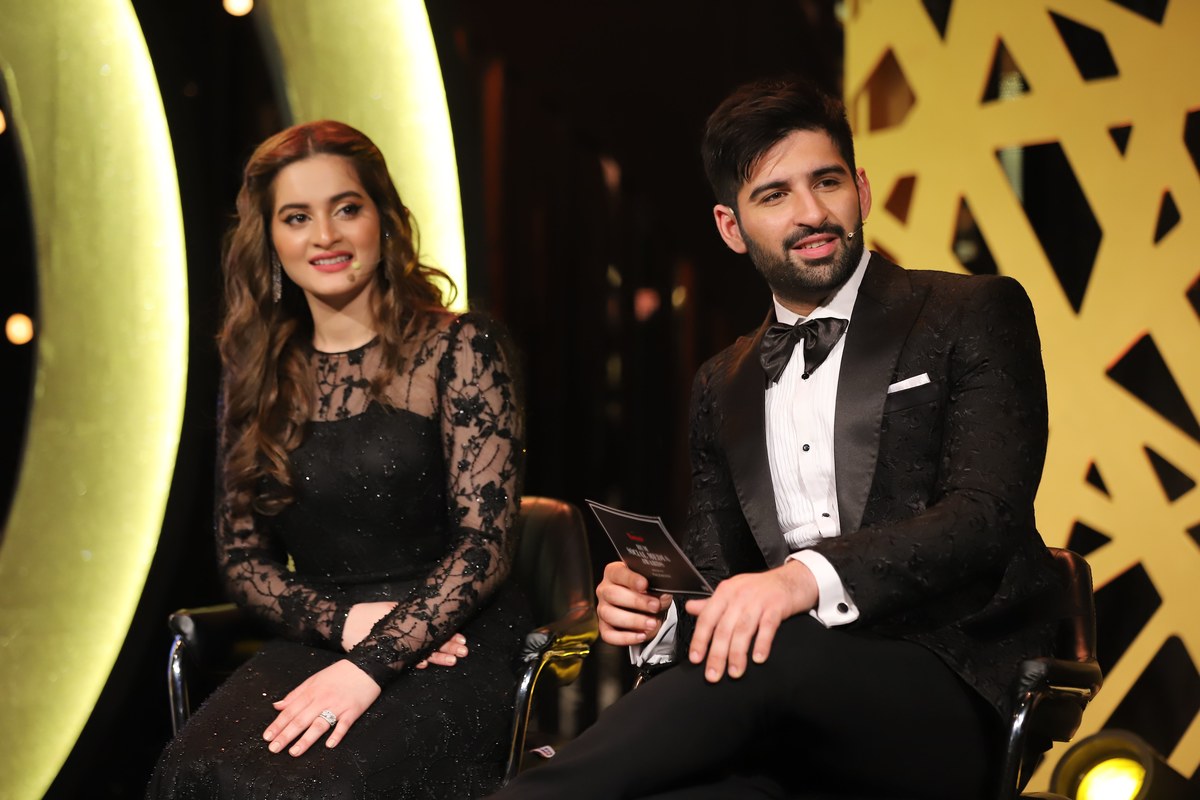
Ayesha Omar and Wajahat Rauf at Pakistan’s first social media awards ceremony that was powered by Facebook on October 2, 2020. (Picture Courtesy: HUM Network Limited)
We started working on the idea of holding Social Media Awards as people were consuming these platforms more in lockdown,” Hum Network Limited President Sultana Siddiqui told Arab News.
“I feel proud as this is the first time that a TV channel in Pakistan has collaborated with Facebook to recognize the potential of social media,” she said, adding that the awards were a first for the whole region, and even in India an event of this kind had not been organized.
Hassan Salahuddin, head of Facebook Pakistan media partnerships, also expressed excitement about the country’s first-ever social media awards.
“Pakistan’s digital landscape has evolved over the past few years, and content creators have built a unique place in our day-to-day lives by entertaining, inspiring and educating us,” he said. “It is heartening to see them receive acknowledgement and appreciation for their hard work. We will keep extending this support in future as well.”
Nominations were based on achievements across platforms such as Facebook, YouTube and Instagram, social media followership, interaction rate and content created between July 2019 and June 2020.
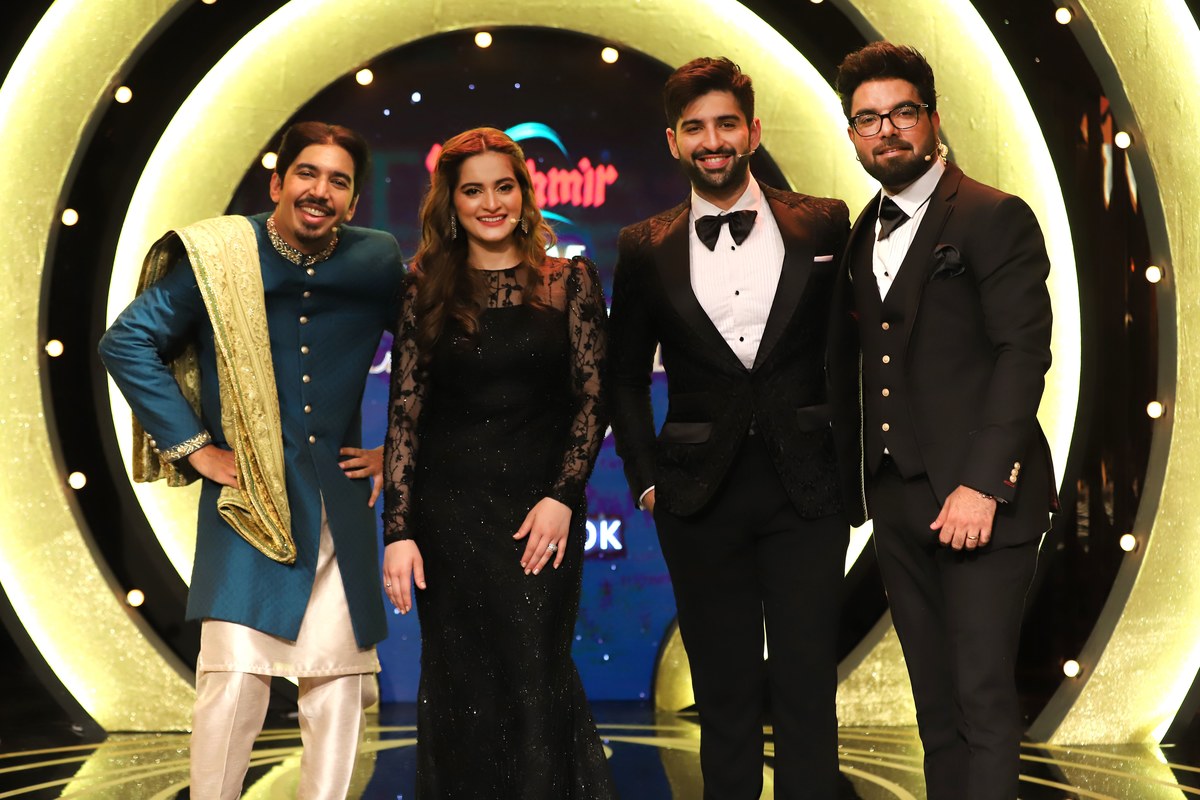
Hosts with Aiman Khan and Muneeb Butt at Pakistan’s first social media awards ceremony that was powered by Facebook on October 2, 2020. (Picture Courtesy: HUM Network Limited)
Many famous Pakistani entertainment stars were not taken into account in the nomination process, Siddiqui said, as the criteria of social media presence were strictly followed.
“Facebook was also cross-checking the whole process,” she added.
Winners were selected through votes cast by HUM’s local and international audience on the network’s website between Sept. 10 and Sept. 22.
Organizers, Siddiqui said, see the awards as a “steppingstone” in encouraging and inspiring young and emerging content creators to “utilize their platforms and their abilities to create meaningful and impactful content.”
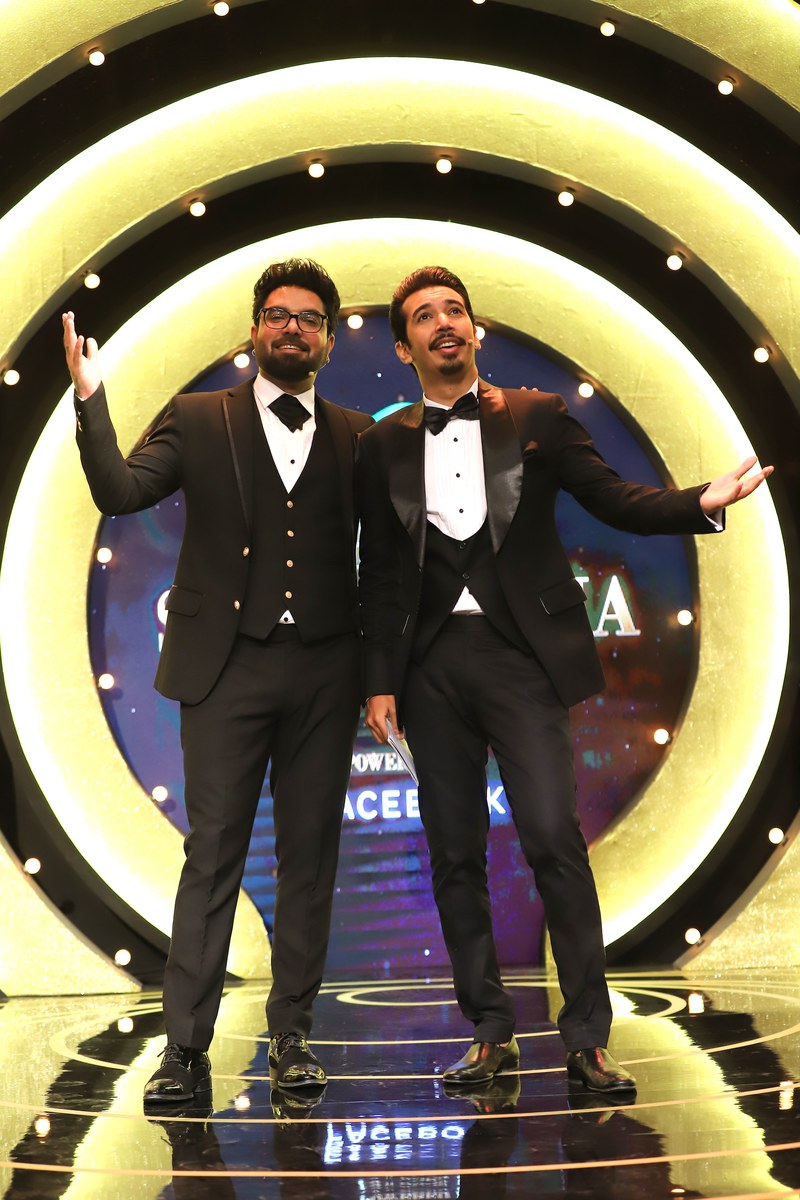
Hosts Yasir Hussain and Mooroo can be seen at Pakistan’s first social media awards ceremony that was powered by Facebook on October 2, 2020. (Picture Courtesy: HUM Network Limited)
But they also recognize the increasing significance of social media.
“Social media is the most efficient medium particularly in the post-COVID-19 scenario,” Hassan Jawed, head HUM’s digital team, said.
“We believe that this is the right time to introduce Pakistan’s first digital awards show to celebrate and honor creative content creators, individuals and businesses who have proved their mettle in the social media landscape of the country.”


